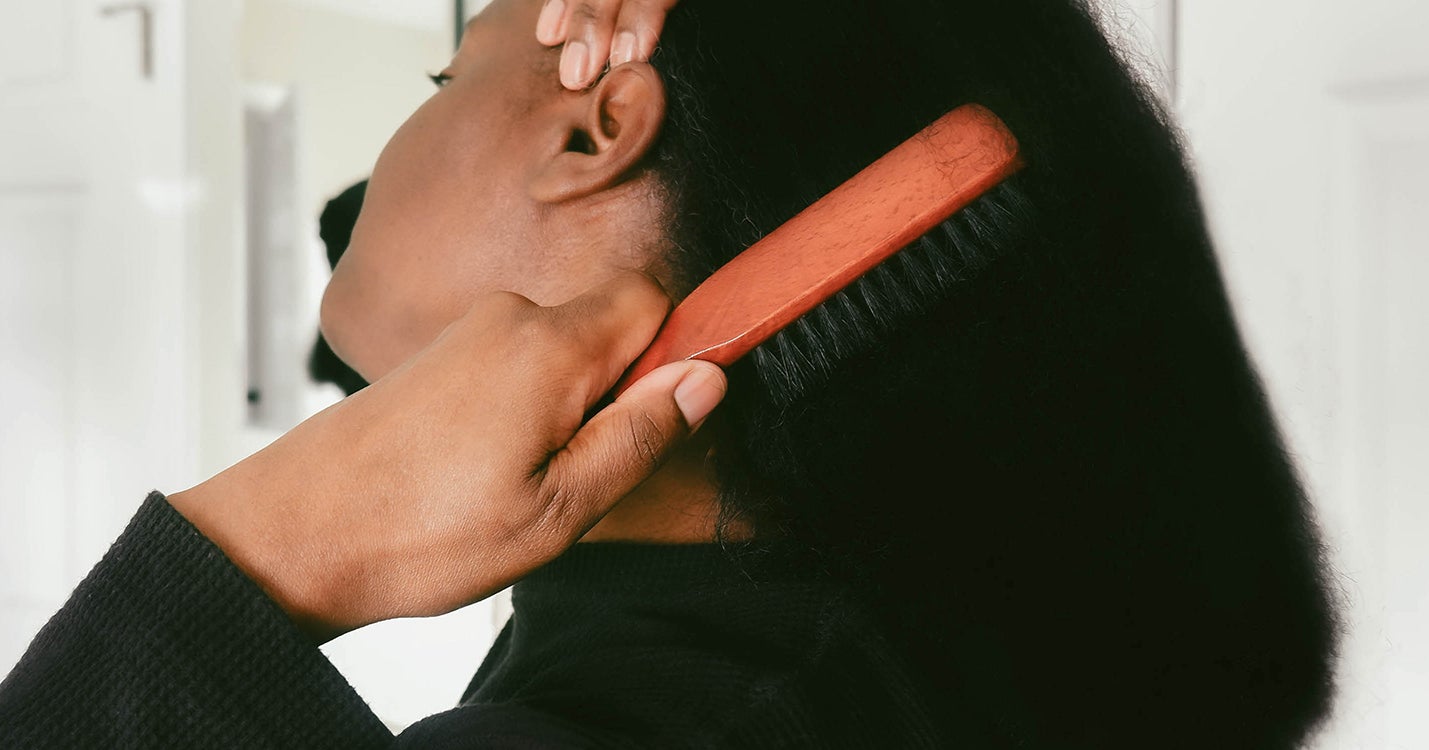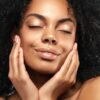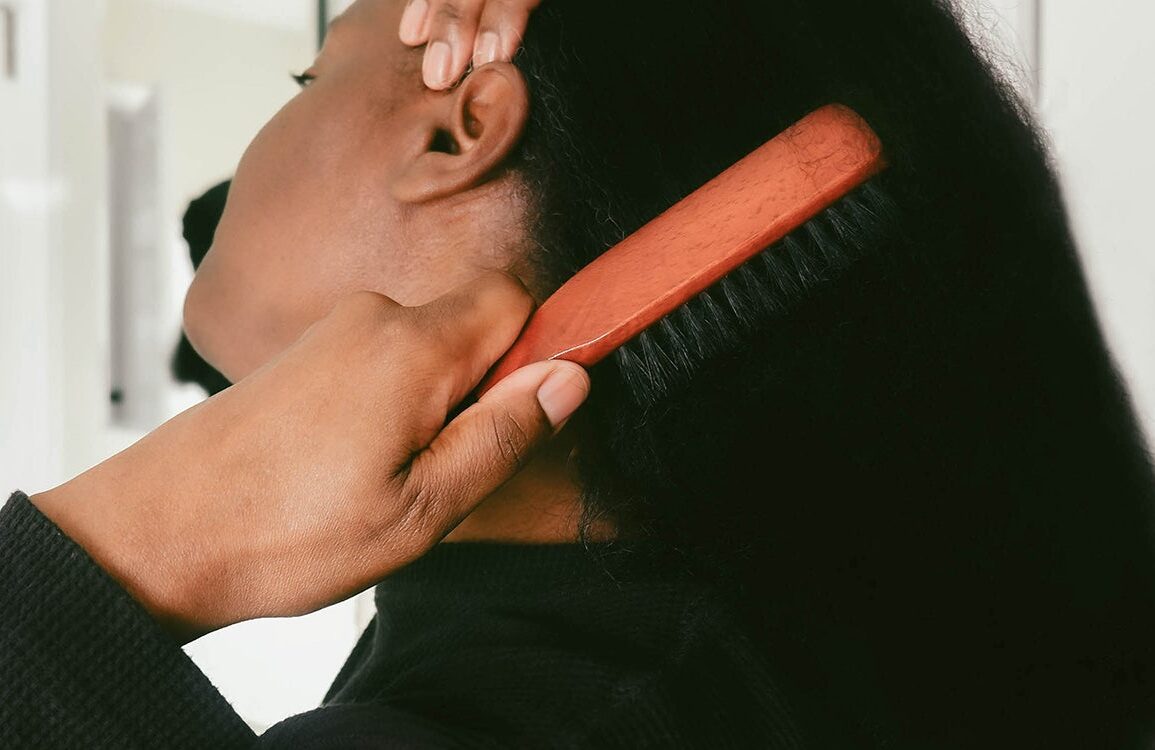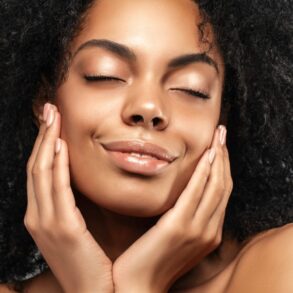
Growing up in Southern Georgia in a big household as one of seven girls, Jenny Mitchell, 34, had always dreamed of raising a family of her own. This goal was shattered one fateful day after a visit to the hospital. “I’d been going to a fertility specialist to try to have kids because it’s something that I’d always wanted. While getting a vaginal ultrasound, my doctor noticed something unusual on my uterine lining. I got tested, and three days later, I got the call saying I had adenocarcinoma, which is uterine cancer,” she tells Refinery29. “I had to undergo a full hysterectomy to treat it, which was devastating — devastating because it literally took away that dream of mine to have kids and experience motherhood.”
Without a family history of uterine cancer and at such a young age, the news left Mitchell confused and distraught. Less than 10% of uterine cancercases occur in women under 50 and even fewer in women under 30; things just didn’t make any sense. It wasn’t until four years later in 2022 that she started making connections, reading the landmark 2022 study from the Journal of the National Cancer Institute (JNCI), which found that frequent users of hair straightening products more than doubled their risk of developing uterine cancer by age 70 compared to those who have never used one. Mitchell had been using hair relaxers religiously since the age of just eight, and finally discontinued her use that same year, upon reading about the association between these products and cancer. “It was just a social norm,” she explains. My mother, who has six daughters, was introduced to relaxers by a friend. It was about maintaining our hair better and making it lay a certain way, which was seen as more acceptable.”
In October 2022, Mitchell sought civil rights and catastrophic personal injury lawyer Ben Crump to launch a legal claim against five hair relaxer companies on the grounds that their products caused her cancer. With Mitchell setting the precedent as the first person to take this matter to court, an astonishing 8,920 lawsuits have now been filed in the US against cosmetics giants like L’Oréal, Revlon and Namasté Laboratories, as of June 2024. This represents a staggering increase from the approximately 60 cases filed in February 2023, with all claiming that their chemical hair straightening products, aka ‘hair relaxers’, caused claimants cancer and other health issues. The pressure is on in the UK, too, with the lobby group Level Up calling for L’Oréal to either “make the products safe to use or take them off the shelves” and several specialist lawyers actively trying to establish group hair relaxer claims.
Mitchell’s story represents a wider public health crisis disproportionately impacting Black women, who report the highest rates of chemical hair straightener use and, in the strongest formulations. The use of these products have not only been linked to uterine cancer deaths but also uterine fibroids, both conditions in which Black women are overrepresented. Accordingly, around 42 per 10,000 women are hospitalised annually because of fibroids in the US; for white women, this incidence rate is 18, shooting up to a staggering 68 per 10,000 for Black women. Myomectomy and hysterectomy rates for Black women are also higher compared to all women. In fact, the risk factors for Black women are so high that “African ancestry is considered a key risk factor for the development of fibroids” by most researchers.
Though uterine fibroids are largely benign (noncancerous) growths and mainstream scientific opinion is that they do not increase the likelihood of uterine cancer, they do often hinder quality of life in severe cases. Furthermore, the large symptomatic overlap between the two conditions makes proper diagnosis more challenging, especially in the context of medical racism and sexism, neglecting further research and attention to issues predominantly affecting Black women. These reasons likely explain why we’re yet to figure out how and why African ancestry is even a risk factor for fibroids, though vitamin D deficiency, stress from socioeconomic inequalities and chemical hair straighteners have all been theorised as contributing influences.
For Ben Crump, chemical hair straightening products, which have been widely used by Black women worldwide since the 1960s, are an obvious culprit for the health disparities we’re witnessing today. “The statistics are undeniable that Black women who have used chemical hair relaxers are almost twice as likely to develop uterine cancer than women who have not used them,” states Crump. “There’s no way you should see this many Black women having uterine cancer if there’s not some intervening cause.”
While the JNCI report identified an association rather than definitively proving causation, Crump still finds the findings “jaw-dropping” and has “vetted hard” with other experts. For instance, PubMed’s ‘Black Women’s Health Study’, published in October 2023, has corroborated these initial insights, also concluding that “long-term use of chemical hair relaxers was associated with increased risk of uterine cancer among postmenopausal women.” Following 44,798 women from 1997 to 2019, this report had an even larger sample size and monitoring period than JNCI’s, which observed 33,947 women over an average timespan of 10.9 years.
Speaking to Dr Dale Sandler, a co-author of the JNCI paper, on the implications of these findings, she tells Refinery29, “Hair products such as dye and chemical straighteners contain a number of chemicals that may act as carcinogens or endocrine disruptors and thus may be important for cancer risk. Chemical hair straighteners, in particular, have been found to include chemicals such as phthalates, parabens, cyclosiloxanes and metals and may release formaldehyde when heated.” These chemicals have not only been linked to uterine cancer but also ovarian and breast cancer, indicating common risk factors relating to hormonal exposure.
Various medical professionals have spoken out against these alleged risks beyond this study, with one Black female sonographer from Nigeria sharing on Twitter, “As a medical sonographer, at least 6 out of 10 Nigerian women that I scan daily have uterine fibroids. It is very frequent[,] and there is definitely another causative factor [aside from] racial predisposition.” In another tweet, she says, “I do believe there is a possible link between relaxers and uterine fibroids. I’ve scanned some white/Asian/Arab women (although at lower numbers compared to Black women), but not one of these non-black women had fibroids.”
Although Dr Sandler says that the study does not prove cause and effect, she maintains that it is “the first report of a potential link between hair relaxers/straighteners and uterine cancer.” The research conducted in both PubMed and JNCI’s studies may form part of the scientific evidence currently being used by the FDA to consider banning formaldehyde in US consumer goods, an ingredient typically seen in keratin treatments and Brazilian blowouts, as early as July of this year. These systems have a similar effect as cream-based hair relaxers in which they break down the keratin bonds of curly hair to create a straighter look — an extremely damaging process for the strands.
L’Oréal is adamant that the allegations made in the numerous lawsuits against them “have neither legal nor scientific merit”, telling Refinery29:
“L’Oréal’s highest priority is the health and wellbeing of all our consumers. Our products are subject to a rigorous scientific evaluation of their safety by experts who also ensure that we strictly follow all regulations in every market in which we operate.
“While we understand the desire of each plaintiff to find answers to and relief from their personal health concerns, we are confident in the safety of SoftSheen-Carson’s products and believe the allegations made in these lawsuits have neither legal nor scientific merit.
“The novel study upon which all these lawsuits [are] based recognized the need for further research, and it made no finding of a causal connection between the use of those products and any conditions alleged by the plaintiffs. Tellingly, while the study clearly states that ‘more research is warranted,’ one of the lead researchers of the study has also acknowledged that there could be other potential contributing factors to the health outcomes.”
We also reached out to representatives at ORS Haircare (owned by Namasté Laboratories) for comment but they did not return our request.
Despite denials from L’Oréal, whose Dark & Lovely line is the most prolific among the several named defendants, many Black women in the West are adding these insights onto a growing list of reasons to stay off the ‘creamy crack’ known as hair relaxers. North America and Europe have experienced considerable market contractions in the past few years, owing to the rise of the ‘natural hair movement’, which saw Black women en masse embrace growing their hair in its natural state, and the EU’s tough stance on endocrine disruptors. In sub-Saharan African countries like Nigeria, Cameroon, Kenya and South Africa, however, demand for chemical hair straighteners continues to rise, according to data obtained by The Examination via Euromonitor, a global market research firm.
“The problem with these companies expanding or manufacturing their products in Africa means that they are able to evade a lot of the regulations that are available in, say, the US or in Europe,” Seyi Falodun-Liburd, Co-Director of Level Up tells NBC News. While Nigeria’s National Agency for Food and Drug Administration and Control (NAFDAC) warned Nigerians against the use of hair-smoothing products containing formaldehyde in 2021, no further action has been made to ban or regulate its use as in the likes of Canada, Brazil, the EU and the UK. This relatively lax approach is prevalent continent-wide. Explaining why this is problematic, Falodun-Liburd again tells NBC News, “…consumers are most likely unaware of the effects of these hair relaxers. We don’t expect that [haircare companies] will expose us to harm for profit.” In a series of viral tweets from 2022, it was revealed that many of the models on numerous hair relaxer boxes actually had natural hair, adding more merit to the idea of distrusting hair relaxer manufacturers in the eyes of increasingly sceptical consumers.
While the legal battle between Big Haircare and the people wages on, researchers are still looking into the cancerous associations found in popular hair products to determine if there is a definitive link. “We are continuing to collect information on hair product use, including factors like hair texture, which might affect how chemicals are absorbed,” states Dr Sandler. Furthermore, a number of US-based law firms are still adding claims to the thousands of suits currently being sent to the US District Court of the Northern District of Illinois, which will be approving any trials or global settlements in due time. In the UK, Level Up continues to lobby against the use of lye and other “dangerous ingredients” in chemical hair straighteners, which they’ve found to be included even in products labelled ‘no lye’, including those designed for children. Their #NoMoreLyes petition is still accepting signees.
As for Jenny Mitchell, the woman at the forefront of all this outcry, she hopes her story can act as a catalyst for systematic change. “This was marketed to us as young girls. We were blindsided… There’s nothing on [the packaging] that says ‘if you use these products, this is going to cause you to have uterine cancer,'” she laments. “I was 28 when I got diagnosed with uterine cancer. I can no longer have kids of my own. What about the younger girls? Hopefully, this story can continue to grow and get bigger so that we can protect our young Black women.”
This post was originally published on this site be sure to check out more of their content.







